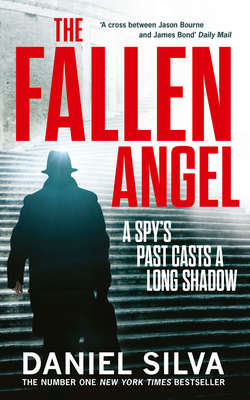Читать книгу The Fallen Angel - Daniel Silva - Страница 19
12 VILLA GIULIA, ROME
ОглавлениеIN A CITY FILLED WITH museums and archaeological wonders, the Villa Giulia, Italy’s national repository of Etruscan art and antiquities, somehow manages to keep a low profile. Rarely visited and easily missed, it occupies a rambling palazzo on the edge of the Borghese Gardens that was once the country house of Pope Julius III. In the sixteenth century, the villa had overlooked the city walls of Rome and the gentle tan slopes of the Parioli hills. Now the hills were lined with apartment blocks, and beneath the windows of the old papal retreat thundered a broad boulevard that pedestrians crossed at their own risk. The weedy forecourt had been turned into the staff parking lot. The battered fenders and sun-faded paint bore witness to the low wages earned by those who toiled within the state museums of Italy.
Gabriel arrived at 5:15 and made his way to the second-floor gallery where the Euphronios krater, regarded as one of the greatest single pieces of art ever created, resided in a simple glass display case. A small placard told of the vessel’s tangled history—how it had been looted from a tomb near Cerveteri in 1971 and sold to the Metropolitan Museum of Art for the astonishing price of one million dollars, and how, thanks to the tireless efforts of the Italian government, it had finally been returned to its rightful home. Cultural patrimony had been protected, thought Gabriel, looking around the uninhabited room, but at what cost? Nearly five million people visited the Met each year, but here in the deserted halls of the Villa Giulia, the krater was left to stand alone with the sadness of a knickknack gathering dust on a shelf. If it belonged anywhere, he thought, it was in the tomb of the wealthy Etruscan who had purchased it from a Greek trader two and a half thousand years ago.
Gabriel heard the clatter of high heels and, turning, glimpsed a tall, elegant woman coming through the passage from the adjoining gallery. Dark hair fell softly about her shoulders, and wide brown eyes shone intelligently from her face. The cut of her suit suggested a source of income beyond the museum, as did the jewelry that sparkled on the suntanned hand she extended in Gabriel’s direction. She held the embrace for a moment longer than was necessary, as though she had been waiting to meet him for some time. She seemed well aware of the impact of her appearance.
“You were expecting someone in a white lab coat?”
“I only know one archaeologist,” said Gabriel, “and he’s usually covered in dirt.”
Dr. Veronica Marchese gave a fleeting smile. She was at least fifty, but even in the unflattering halogen light of the museum she could have easily passed for thirty-five. Her name, when spoken by General Ferrari, had been instantly familiar to Gabriel, for it had appeared dozens of times in Claudia’s e-mail accounts. Now he realized her face was familiar, too. He had seen it for the first time outside the Church of St. Anne, at the conclusion of Claudia Andreatti’s funeral mass. She had been standing slightly apart from the other mourners, and her eyes had been fixed not on the casket but upon Luigi Donati. Something about her gaze, remembered Gabriel, had been vaguely accusatory.
